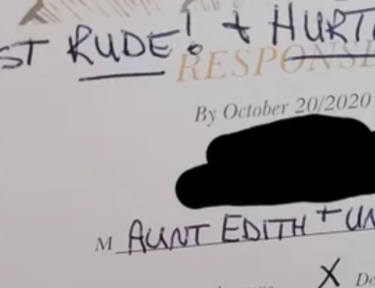Why We Might Want to Rethink Forcing Kids to Hug and Kiss Relatives
The world can be a terrifying place. As kids grow up, they’re taught about everything from manners to bullying to stranger danger fears. Things are definitely not as they were fifteen or twenty-five years ago.
In these ever-changing times, parenting philosophies have also shifted. People are also more vocal about sharing their ideologies and philosophies. There are labels and names for everything too now. One that’s set the internet ablaze has to do with showing affection – or not, rather. Hugs. Kisses. High-fives.
It all started in 2012 when Katia Hetter, a writer for CNN, published an article on parenting. It was updated in 2015 and found new life this past winter, stirring debates and thoughtful conversations about a child’s consent and body autonomy.
To make her point, Hetter described her young daughter’s choice to go on “hugging and kissing strikes”, and her choice to support her not hugging Grandma if she didn’t want to. Her position?
“No, she doesn’t have to. And just to be clear, there is no passive-aggressive, conditional, manipulative nonsense behind my statement. I mean what I say. She doesn’t have to hug or kiss anyone just because I say so, not even me. I will not override my own child’s currently strong instincts to back off from touching someone who she chooses not to touch.
I figure her body is actually hers, not mine.”
True. The article raised points about demanding or expecting a child to hug a relative, friend, or stranger out of respect or politeness. It asserted that doing so ignores the comfort level of that child for the sake of not hurting someone else’s feelings.
The writing includes a variety of insights, including from a family mental health specialist, a child safety advocate, and a parenting coach. It brings up issues of sexual predators, politeness, and unwanted advances from peers. But Hetter also explained that she wants her daughter to be able to show affection however she feels, as a child and adult.
For now, she lets her daughter decide if a person gets a high-five or a hug. I’m sure many of us can relate to not wanting to have our cheeks pinched by an old uncle or peck on the check from granny. And much can be said about a kid’s instincts for who is bad news.
But what do you make of families or individuals who are “huggers”? Generations of us have grown up giving and receiving hugs and kisses to family members and friends – even if we weren’t on board. Hugging it out has also been a way to end family feuds.
Teaching children from an early age to own their bodies is critical for their safety. Supporters of Hetter’s stance point out the importance of kids being able to confidently say no – to deny or grant permission of who can touch them on their own terms. Others cite the innocence of learning how to be affectionate with family.
What do you think of Katia Hetter’s parenting style on this issue? Would you consider your child’s feelings? Are there certain people you had to hug or kiss as a kid but didn’t want to? Share with us in the comments!




